| Coach | NA |
| Venue | Estadio 23 de Agosto |
Gimnasia Jujuy Trivia
Gimnasia Jujuy predictions
Predictions for Gimnasia Jujuy: See upcoming and historic predictions for Gimnasia Jujuy below.
Disclaimer: Past performance does not guarantee future results. Betting involves risk; only wager what you can afford to lose. Always gamble responsibly.
Gimnasia Jujuy Opinions
 Who is the most iconic player in Gimnasia Jujuy's history?
Who is the most iconic player in Gimnasia Jujuy's history?
Gimnasia Jujuy latest results
| 12/04 | - | ||
| 05/04 | 1 - 0 | ||
| 31/03 | 1 - 0 | ||
| 23/03 | 1 - 1 | ||
| 16/03 | 2 - 1 |
Gimnasia Jujuy latest transfers
| Date | Player | From | To | Price |
|---|---|---|---|---|
| 2016-07-01 | Nicolás Correa Risso | Gimnasia Jujuy | Defensor Sporting | € Free |
| 2016-01-15 | Nicolás Correa Risso | Cerro | Gimnasia Jujuy | € Free |
Primera Nacional standings
| Rank | Team | MP | W | D | L | GF | GA | GD | Pts |
|---|---|---|---|---|---|---|---|---|---|
| 1 |
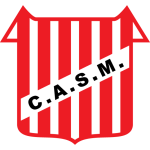 San Martin Tucuman
San Martin Tucuman
|
10 | 6 | 1 | 3 | 13 | 5 | 8 | 19 |
| 2 |
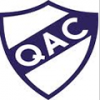 Quilmes
Quilmes
|
9 | 5 | 4 | 0 | 10 | 2 | 8 | 16 |
| 3 |
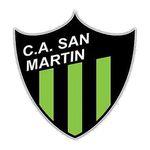 San Martin S.J.
San Martin S.J.
|
10 | 4 | 4 | 2 | 10 | 9 | 1 | 16 |
| 4 |
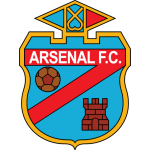 Arsenal Sarandi
Arsenal Sarandi
|
10 | 4 | 3 | 3 | 10 | 9 | 1 | 15 |
| 5 |
 All Boys
All Boys
|
9 | 3 | 5 | 1 | 7 | 5 | 2 | 14 |
| 6 |
 Agropecuario
Agropecuario
|
9 | 3 | 4 | 2 | 12 | 10 | 2 | 13 |
| 7 |
 Racing Cordoba
Racing Cordoba
|
9 | 3 | 4 | 2 | 8 | 7 | 1 | 13 |
| 8 |
 Alvarado
Alvarado
|
9 | 3 | 4 | 2 | 8 | 7 | 1 | 13 |
| 9 |
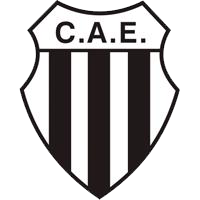 CA Estudiantes
CA Estudiantes
|
9 | 3 | 4 | 2 | 5 | 5 | 0 | 13 |
| 10 |
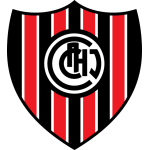 Chacarita Juniors
Chacarita Juniors
|
10 | 3 | 3 | 4 | 9 | 11 | -2 | 12 |
| 11 |
 San Miguel
San Miguel
|
9 | 1 | 7 | 1 | 5 | 5 | 0 | 10 |
| 12 |
 Tristan Suarez
Tristan Suarez
|
9 | 2 | 4 | 3 | 10 | 11 | -1 | 10 |
| 13 |
 Guillermo Brown
Guillermo Brown
|
9 | 2 | 4 | 3 | 8 | 9 | -1 | 10 |
| 14 |
 Talleres Remedios
Talleres Remedios
|
9 | 2 | 4 | 3 | 6 | 7 | -1 | 10 |
| 15 |
 Gimnasia Jujuy
Gimnasia Jujuy
|
9 | 3 | 1 | 5 | 7 | 9 | -2 | 10 |
| 16 |
 Ferro Carril Oeste
Ferro Carril Oeste
|
10 | 2 | 4 | 4 | 12 | 15 | -3 | 10 |
| 17 |
 Patronato
Patronato
|
10 | 2 | 4 | 4 | 6 | 12 | -6 | 10 |
| 18 |
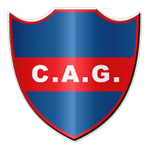 Club Atlético Güemes
Club Atlético Güemes
|
9 | 1 | 6 | 2 | 5 | 6 | -1 | 9 |
| 19 |
 Deportivo Maipu
Deportivo Maipu
|
9 | 2 | 1 | 6 | 7 | 15 | -8 | 7 |
About Gimnasia Jujuy
Club Atlético Gimnasia y Esgrima, commonly known as Gimnasia Jujuy or simply Gimnasia, is a professional football club based in San Salvador de Jujuy, Argentina. Founded on March 18, 1931, the club has a rich history in Argentine football, having competed in the top divisions of the sport for several decades.
Gimnasia Jujuy's colors are black and white, represented in their traditional striped shirts. The team's emblem, a wolf, symbolizes their tenacity and fighting spirit. The club's home ground is the Estadio 23 de Agosto, which has a capacity of approximately 23,000 spectators.
The club's journey through the ranks of Argentine football has been a rollercoaster ride. After years in the regional leagues, Gimnasia Jujuy made their debut in the Argentine Primera División, the top tier of Argentine football, in 1970. However, the club's stint in the top flight was short-lived, and they were relegated after just one season.
Gimnasia Jujuy returned to the Primera División in 1986, marking the beginning of the club's golden era. They remained in the top flight for over a decade, achieving their highest ever league finish, fourth place, in the 1998 Clausura tournament.
Despite their successes, Gimnasia Jujuy faced financial difficulties and were relegated to the second division, Primera B Nacional, in 2000. The club bounced back and forth between the first and second divisions over the next decade, before settling in the Primera B Nacional in 2011.
Gimnasia Jujuy's most notable achievement on the national stage came in 1993 when they reached the final of the Copa Argentina, the country's premier knockout tournament. Although they were runners-up, this remains the club's best performance in a national competition.
Over the years, Gimnasia Jujuy has nurtured several talented players who have gone on to represent Argentina at the international level. These include goalkeeper Roberto Abbondanzieri, who was part of Argentina's 2006 World Cup squad, and midfielder Ariel Montenegro, who represented Argentina in the 1995 Copa America.
Despite the ups and downs, Gimnasia Jujuy remains a beloved institution in the province of Jujuy. The club's passionate fans, known as the "Lobos," are renowned for their unwavering support, turning out in large numbers for home and away games alike.
In recent years, Gimnasia Jujuy has focused on youth development, investing in their academy and scouting network to nurture the next generation of Argentine football talent. The club's vision is to return to the top flight of Argentine football and compete with the country's best teams.
In summary, Club Atlético Gimnasia y Esgrima, or Gimnasia Jujuy, is a historic Argentine football club with a proud tradition and a passionate fan base. Despite the challenges they have faced, the club remains a vital part of the local community and continues to contribute to the development of Argentine football.















